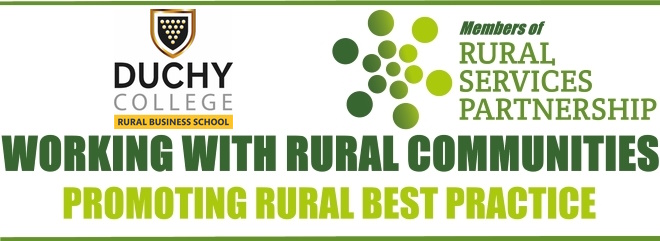T: 01822 851370 E: [email protected]
RSN Voices Serious Concerns Over ‘Fairness’ Of Settlement
Read here...
College in Cornwall trials net zero maize farming
 The Rural Business School at Duchy College has launched its innovative Farm Net Zero maize trials at the Stoke Climsland campus to investigate how the College can reduce its environmental impact of maize cultivation, a key crop for many dairy farmers in the South West.
The Rural Business School at Duchy College has launched its innovative Farm Net Zero maize trials at the Stoke Climsland campus to investigate how the College can reduce its environmental impact of maize cultivation, a key crop for many dairy farmers in the South West.
These trials aim to explore more sustainable farming methods while maintaining crop yield and quality, essential for both the agricultural economy and environmental stewardship.
The research will compare two methods of establishing maize: traditional ploughing versus reduced tillage cultivation, additionally, the team will investigate the potential benefits of undersowing maize with different grass species mixes.
At harvest, each plot will be meticulously analysed for yield and quality, with comparisons drawn to assess the effects of each cultivation method and evaluate their impact on soil quality; including structure, worm counts and water infiltration rates, compared to conventional bare maize stubble.
Robin Jackson, director of the Rural Business School, highlighted the importance of these trials, he said: “This project demonstrates how research and education can drive meaningful changes in farming practices, helping to ensure a more sustainable future for the agricultural industry.”
The results of this trial will not only inform best practices for local farmers but also contribute to the dissertation of Beth Wallace, a BSc Agriculture student from Duchy College.
“This is a unique opportunity for me to be part of something that could have a significant impact on how we farm in the future,” commented Beth. “Agriculture is evolving, and it’s essential that the next generation of farmers think beyond traditional methods and look at greener, more sustainable practices.”
Explaining the trials, Beth explained: “We will be measuring the crop yield and quality, soil structure, stability and water infiltration, and biological indicators of the six trial plots over two years, analysing the data to identify any effects of each management variable. The results will inform future efforts to balance the needs of production and the environment.”
As a recognised centre of agricultural knowledge exchange excellence, the Rural Business School works closely with the industries, professions and organisations involved in the global agri-food chain and the UK rural economy.
Venetia Summers, Head of Duchy College Stoke Climsland, added: “It’s great to see Duchy College leading in sustainable farming initiatives. Results of these experiments will give us invaluable information on how maize can be produced and cultivated sustainably, as the industry works toward reducing agriculture’s carbon footprint. We’re incredibly proud to see students, like Beth, demonstrate such passion and enthusiasm for innovative greener practices”
Farm Net Zero is funded by the National Lottery Community Fund and works closely with the farming community in East Cornwall to explore ways of reducing the sector’s carbon footprint.
The project is managed by the Rural Business School, in collaboration with Farm Carbon Toolkit, Westcountry Rivers Trust, Innovative Farmers and Innovation for Agriculture.
To find out more about courses available at Duchy College visit duchy.ac.uk



